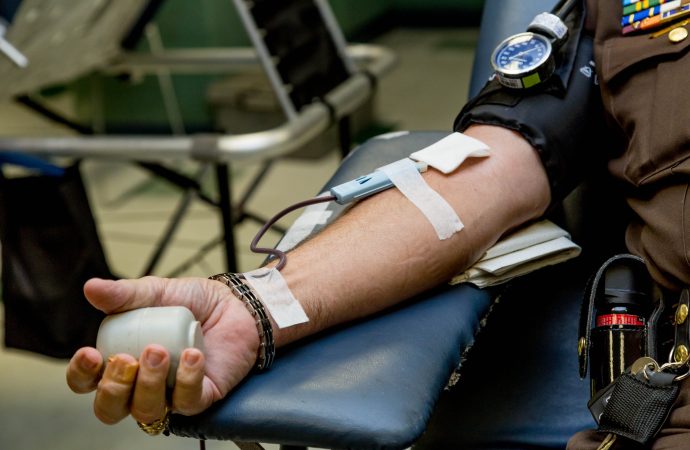The recent death of a British man from a rare blood syndrome after receiving the AstraZeneca COVID-19 vaccine has sparked a debate over the safety of the vaccine. The man, who has not been named, died in April after developing thrombosis with thrombocytopenia syndrome (TTS), a rare condition that has been linked to the AstraZeneca
The recent death of a British man from a rare blood syndrome after receiving the AstraZeneca COVID-19 vaccine has sparked a debate over the safety of the vaccine. The man, who has not been named, died in April after developing thrombosis with thrombocytopenia syndrome (TTS), a rare condition that has been linked to the AstraZeneca vaccine.
TTS is a serious and potentially life-threatening condition that involves blood clots and low platelet counts. The risk of developing TTS after receiving the AstraZeneca vaccine is rare, occurring in approximately 1 in 100,000 people who receive the vaccine, but the potential consequences are severe.
The incident has raised concerns about the safety of the AstraZeneca vaccine and the transparency of vaccine trials. While all vaccines undergo rigorous testing and safety checks before they are approved for use, rare side effects such as TTS may only become apparent once the vaccine is administered to millions of people.
The UK’s Medicines and Healthcare products Regulatory Agency (MHRA) has emphasized that the benefits of the AstraZeneca vaccine still outweigh the risks, and that the vaccine is safe and effective for the majority of people. However, the agency has advised that people under the age of 40 should be offered an alternative vaccine due to the increased risk of TTS in this age group.
The incident has also highlighted the need for clear communication about vaccine risks and benefits. While vaccination is a crucial tool in the fight against COVID-19, it is important for health authorities to be transparent about the potential risks associated with vaccines and to communicate this information clearly to the public.
The debate over the safety of the AstraZeneca vaccine has also been fueled by concerns about vaccine hesitancy and misinformation. Some individuals may be hesitant to receive the vaccine due to concerns about rare side effects, despite the overwhelming evidence of its safety and efficacy in preventing COVID-19.
Experts emphasize that the risk of developing TTS from the AstraZeneca vaccine is extremely low, and that the benefits of vaccination far outweigh the risks. Vaccination remains a crucial tool in the fight against COVID-19, and has been shown to be effective in reducing the spread of the virus and preventing severe illness and death.
However, the incident highlights the need for continued monitoring and investigation of adverse reactions to the vaccine, and the importance of transparency and clear communication with the public about the potential risks and benefits of vaccination.
In conclusion, the death of a British man from TTS after receiving the AstraZeneca vaccine has sparked a debate over the safety of the vaccine. While the risk of developing TTS is small, health authorities must continue to monitor and investigate potential side effects of the vaccine, and to communicate this information clearly to the public. Despite these concerns, vaccination remains a crucial tool in the fight against COVID-19, and individuals should discuss any concerns they may have with their healthcare provider. It is important for the public to be informed and for health authorities to maintain transparency to combat vaccine hesitancy and misinformation.

















Leave a Comment
Your email address will not be published. Required fields are marked with *